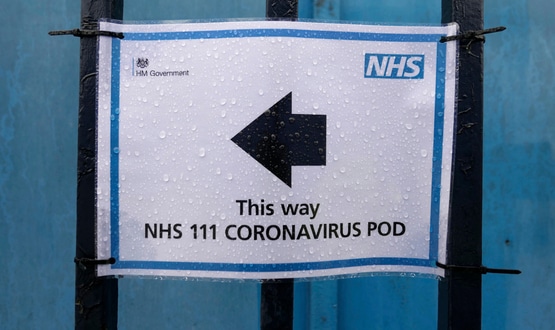More than 1,700 GP practices contribute data for Covid-19 research
- 21 September 2020

More than 1,700 GP practices have stepped forward to contribute patient data for Covid-19 research at the University of Oxford.
The data, which has already led to published research on Covid-19 risk factors, has come from a daily pseudonymised feed from participating practices provided by EMIS since July.
EMIS has also given researchers at the university first access to its new clinical data and analytics product. Built on the cloud-based EMIS-X platform, the new EMIS-X Analytics technology is now being piloted in a number of academic studies relating to Covid-19, ahead of its launch to NHS customers.
The response from GPs follows a joint appeal in March by the Oxford Royal College of General Practitioners Research and Surveillance Centre (Oxford RCGP RSC) at Oxford University, and clinical systems supplier EMIS, for practices to share their data under strict governance guidelines.
To date, 1,774 practices covering nearly 10 million patients have volunteered to take part in the Covid-19 research.
Professor Simon de Lusignan, director of the RSC, said he was “delighted” by the response from GPs.
“We had a resource before, but it is on a fantastic scale now, and is already helping us to answer important questions about Covid-19,” he added.
“The sheer numbers coming forward have surprised and delighted me, but primary care has really stepped up to the plate on all fronts in this crisis. It would be difficult to do this research without carefully coded primary care data. For example, ethnicity is well recorded by many GP practices, and this was vital to help us understand the impact of Covid-19 on BAME communities.”
The data is enabling the researchers to understand the spread of Covid-19, including tracking when it peaks and helping to inform strategy on local social distancing and lockdown.
It is also being used to evaluate rapid Covid-19 finger prick tests against swab tests. Some practices are taking part in rapid clinical trials of antibiotics to reduce the duration and severity of the virus.
Dr Shaun O’Hanlon, chief medical officer at EMIS, added: “I’m very grateful to all the GPs who have come forward to share data and take part in the research, along with thousands of patients.
“The Covid-19 outbreak has highlighted the need to obtain good quality data quickly, and the power of data to make a difference. Our technology provides the secure, powerful processing tools needed by researchers, healthcare providers and government to answer important questions quickly by running complex queries over aggregated datasets at speed.”




